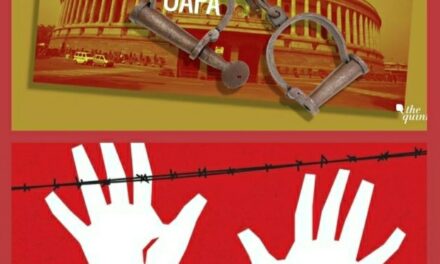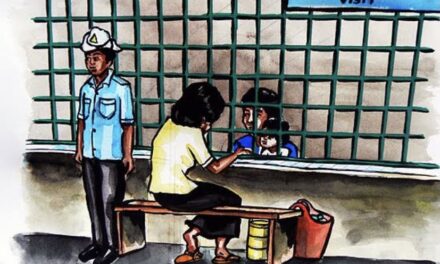Place of suing in case of copyright infringement


Priyanshu Agarwal
Copyright is in reality, a bunch of rights. These rights can be primary and secondary rights, neighboring rights, and moral rights. Section 30 of the Copyright Act empowers the owner of the copyright to license his work through a contract in writing. It is pertinent to mention that a prospective owner of a copyright may also license his future work to a person through a contract in writing. If any person uses the author’s work without such a license then it amounts to copyright infringement.
Jurisdiction in case of copyright infringement
Section 62 of the Copyright Act(“CR”) provides that every suit for copyright infringement shall be instituted in the district court having jurisdiction. And in case of copyright infringement, the suit can be filed where the person who is instituting the suit resides or carries on business or voluntarily works for gain. So, as against the general rule of civil procedure code where a suit is filed at the defendant’s place of residence, work, or business; in case of copyright infringement suit can be filed at the plaintiff’s place of residence, work, or business.
The interplay of Civil Procedure Code, 1908 and section 62 of the Copyright Act
That section 62(2) of the CR Act uses the word ‘notwithstanding’, which is a non-obstante clause, and hence if any provision of Civil Procedure Code(“CPC”) will be in contravention of Section 62(2) then the same will be overruled. However, CPC will still be applicable in issues related to the jurisdiction of the Copyright Act.
Hence, as per section 62 of the copyright act, a suit can be filed at the plaintiff’s place of residence, business, or work but as per Section 20(c) of the CPC, the suit can also be filed at the place where the cause of action arises.
Explanation to Section 20 of the Civil Procedure Code, 1908
Referring to the same analysis as the aforementioned explanation, Section 20 of CPC will be applicable to decide the place of suing, in cases of copyright infringement by legal personalities like a company or a corporation. When a defendant is a juristic person, the suit can be instituted at the place of business of the company or corporation or the place where the cause of action arises. In the case of a juristic person, there is no place of residence or work, only a place of business. The purpose of the explanation is to declare what can be the place of business in the case of a company or corporation. The explanation can be divided into three parts-
- Where the company does not have any subordinate or branch office. Rather, it has only one sole office. Then the suit can be filed where the sole office is situated.
- Where the company has a head office and some branch offices also, in such a case if a cause of action does not arise at any of the branch offices then the place of business shall be considered to be the place where the head office is situated. This will be only in those cases where the cause of action does not arise at a branch office.
- The word ‘or’, and coma ‘,’ after ‘or’ in the latter part of the explanation clearly plays the role of disjunction and it creates a third subpart of the explanation. In this subpart, it is the situation where the company has a head office and branch offices and the cause of action arises at one or more of such branch offices. The last part of the explanation uses the word “at such place” and the word such here refers to the subordinate office where the cause of action arose. Here, the place of business therefore will not be the place of the head office; rather it will be only that place where that subordinate office is situated, where the cause of action arose.
Case of exclusive jurisdiction clause
When two or more courts have jurisdiction then under the exclusive jurisdiction clause. The jurisdiction can be restricted to any one of these courts having jurisdiction. It will not be considered to be against public policy under section 23 of the Indian Contract Act(“ICA”), 1872, and will also not be in restraint of legal proceedings under Section 28 of the IA, 1872. However, if by mutual agreement jurisdiction is conferred upon such a court which actually does not have jurisdiction then that will be against public policy and it will also be in restraint of legal proceedings and hence it will be violative of Section 23 and 28 of ICA, 1872. The same point was held in Harshad Chiman Lal Modi v. DLF Universal Ltd. 2005 (SC).
Jurisdiction in case of copyright societies
Authors and performers can easily become overwhelmed by all requests from people who want to reproduce, broadcast, adapt, or otherwise use their works in a way that requires their permission. Keeping track of all these requests and deciding whether or not to permit them for free or for a fee can be a very time-consuming job. So, to have time to create and perform while still attending to all the requests, many authors and performers rely on the services of collective management organizations. Copyright society is a registered collective administration society for the management and protection of copyright. It is governed by Chapter 7 of the Copyright Act, 1957, and Chapter 9 of the Copyright Rules, 2003. As per Section 2(fft) of CR Act, 1957, copyright society is a society registered under Section 33(3) of the CR Act, 1957.
The function of the copyright society is to issue licenses in respect of the rights administered by the society, collect fees in pursuance of such licenses, distribute fess among the owners of the copyright, and is authorized to watch out for the infringement of the copyright and take appropriate legal action against the infringer. Generally, it is the author who is empowered to institute appropriate legal proceedings civil or criminal as the case may be, but if the author has availed the services of the collective management organization the same can be done by the copyright society.
The place of suing in the case of copyright society will be the place where the copyright society is registered.
Priyanshu Agarwal is pursuing LLM from the Faculty of Law, Jamia Millia Islamia. His interests are in the fields of General Corporate, Mergers and Acquisitions, Taxation, Real Estate, Media, and IPR. (The opinions expressed in this publication are those of the author/s. They do not purport to reflect the opinions or views of The Policy Observer or our members.)
Related Articles
Privatization of Liquor: A Look Into the Loopholes of The Policy
The division of the city was done into 32 zones and licenses were based on the same. In June 2021, the tenders were issued for the application of L-7Z and L-7V licenses. The office of commission of the excise government of the national capital issued terms and conditions for the grant of licenses.
The Information Technology Rules, 2021- A Constitutional Scrutiny
A law prescribing the procedure for depriving a person of his ‘personal liberty has to meet the requirements of Article 19 and if not shall be struck down as arbitrary under Article 14. Liberties and restrictions should run parallel to each other. One overpowering the other would distort the fair working of the constitutional machinery.
Gubernatorial impropriety
The office of the Governor is slowly and steadily being converted into an extended political branch of the central government. The scale and scope this time around are more than ever before! Are we ready for the implications this will have on National Unity and the dent it will cause to the constitutional principles of Cooperative Federalism, Constitutional Morality, and Democracy?








